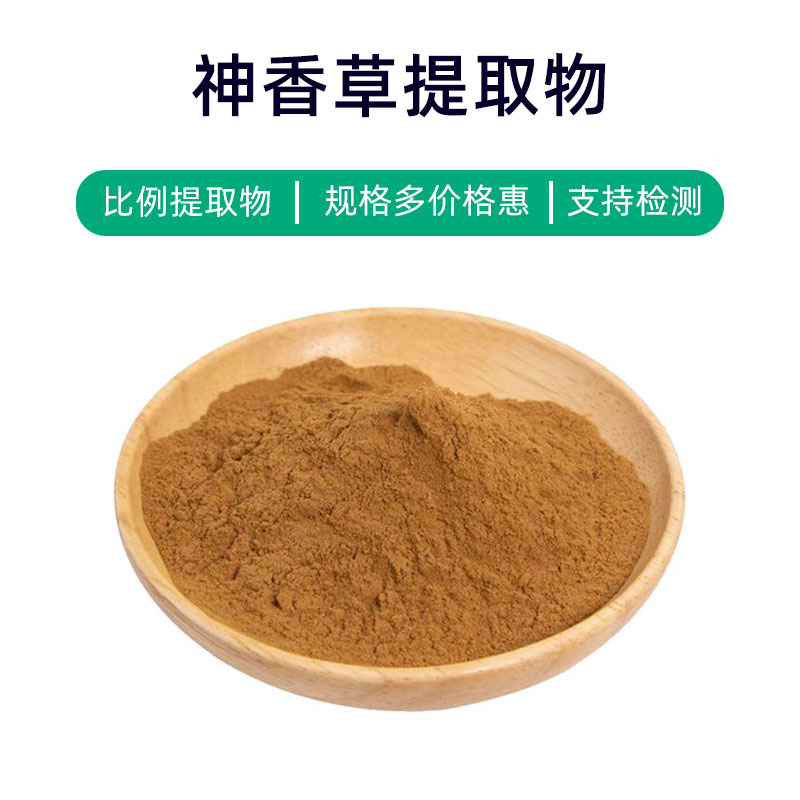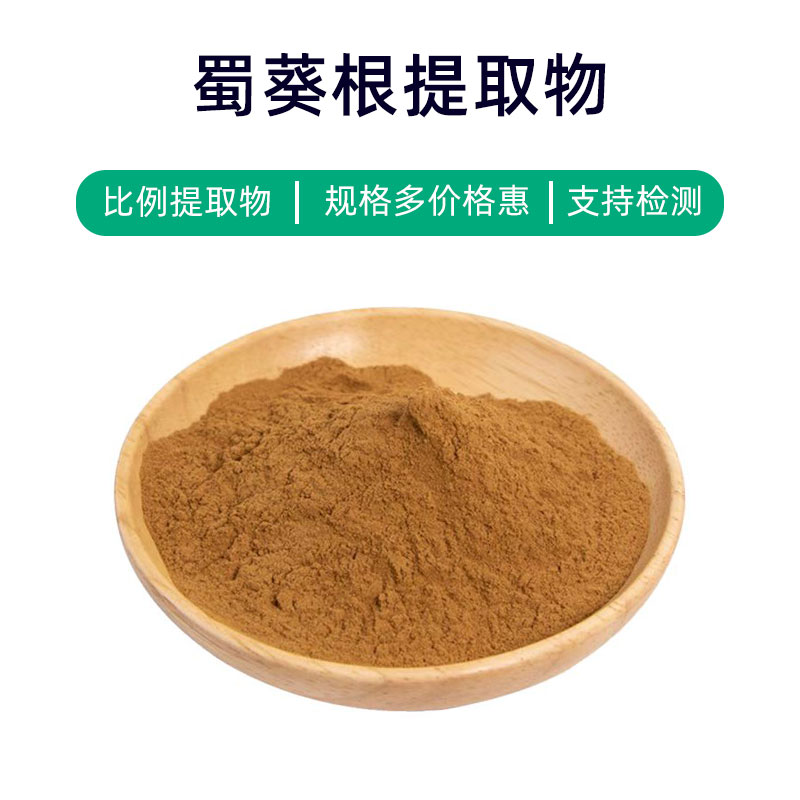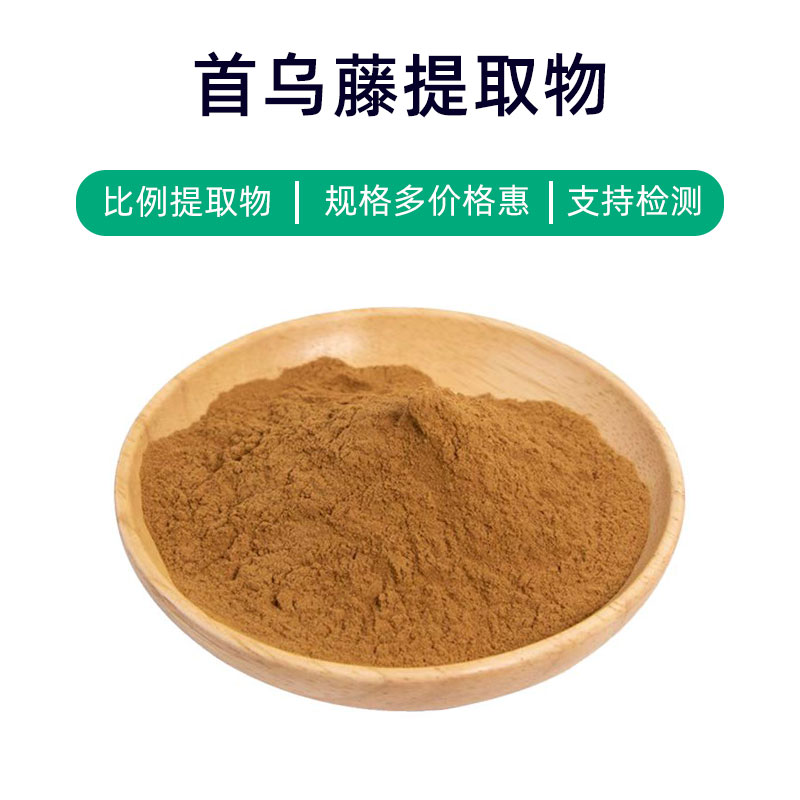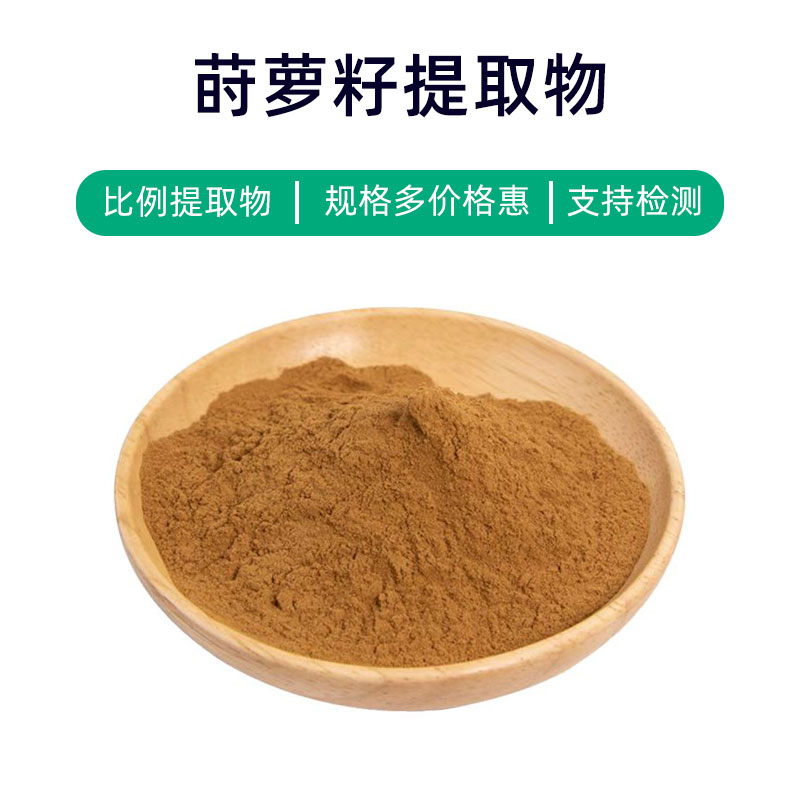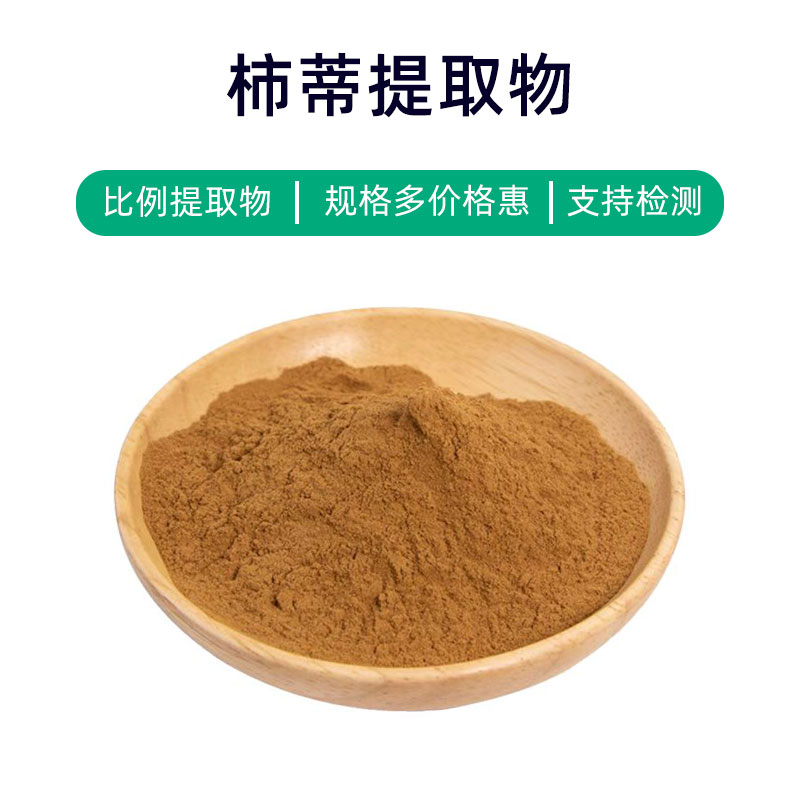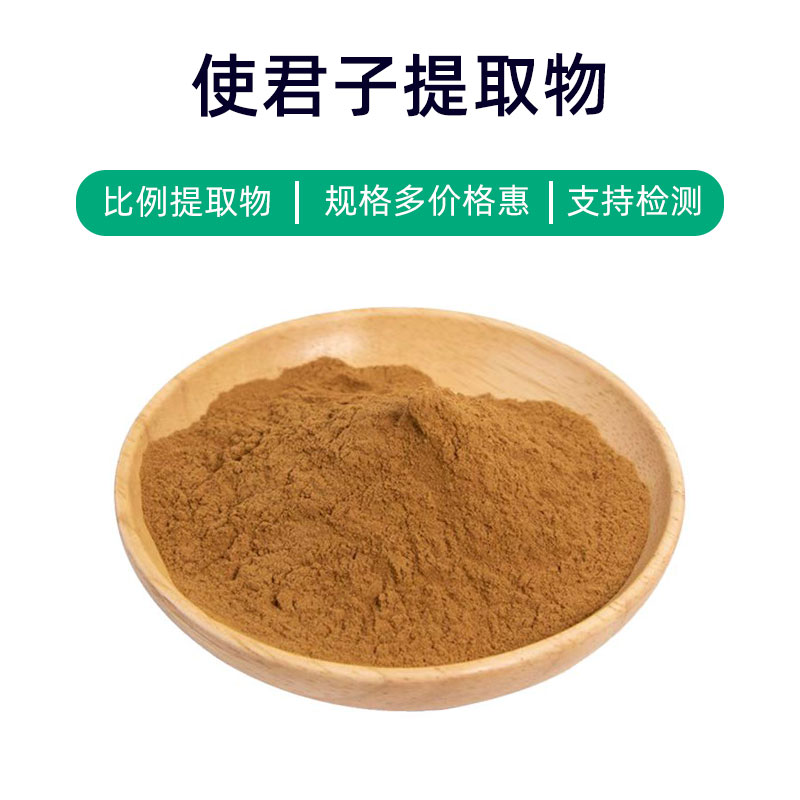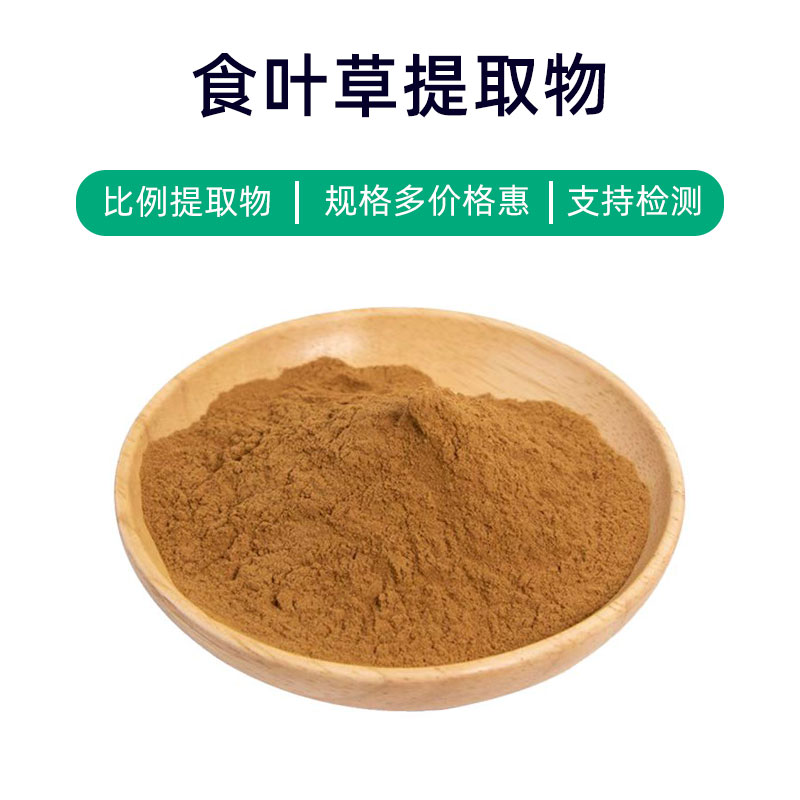Divine Herb Extract Product Introduction
Divine Herb Extract is a natural extract derived from various herbaceous plants, primarily composed of terpenes, phenolics, and volatile oils. These components give Divine Herb Extract its many benefits and applications. Firstly, it has invigorating properties that can enhance attention and alertness, helping alleviate fatigue and improve focus. In addition, Divine Herb Extract also has calming effects that help relieve stress, anxiety, and tension, promoting mental relaxation. Furthermore, due to its rich antioxidant content, it is widely used in cosmetics and skincare products, helping to combat free radical damage, protect the skin from environmental stressors, and delay skin aging. Overall, Divine Herb Extract is a multifunctional natural plant extract suitable for various fields, providing numerous health and beauty benefits.
Divine Herb Extract Production Process
The production process of Divine Herb Extract is a meticulous and complex procedure, involving multiple steps to ensure the quality and purity of the extract.
- Raw Material Preparation: First, select high-quality herbaceous plants such as mint, rosemary, and thyme to ensure their quality and purity.
- Grinding: The selected plants are ground into a powder to increase extraction efficiency.
- Solvent Extraction: The ground plants are mixed with an appropriate solvent (such as ethanol or water) for extraction. During this process, the solvent dissolves the active components from the plants.
- Filtration: The extract is filtered to remove suspended solids and impurities, resulting in a relatively clear solution.
- Concentration: The filtered extract is concentrated, typically using low-temperature evaporation or other suitable methods, to remove excess solvent and obtain a concentrated extract.
- Purification: The concentrated extract undergoes purification to remove impurities and unwanted components. This can be achieved through chromatography, gel filtration, and other methods.
- Testing and Analysis: The purified extract is tested and analyzed to ensure compliance with relevant quality standards and safety requirements.
- Packaging: Finally, the extract is packaged, typically using suitable containers and packing materials to ensure stability and quality during storage and transport.
The specifics of these steps may vary depending on the manufacturer, product requirements, and desired purity. However, this outlines the general process for producing Divine Herb Extract. Throughout the production, strict control of parameters is crucial, adhering to quality management standards to ensure the final product's quality and safety.
Divine Herb Extract Effects and Side Effects
Divine Herb Extract is a natural plant extract commonly used in the food, health supplements, and cosmetics industries, having various effects and benefits.
- Invigoration: Divine Herb Extract contains multiple active components like terpenes and volatile oils that provide invigorating effects, helping to enhance alertness and relieve fatigue.
- Mood Soothing: The components in this extract can help regulate the nervous system, alleviating anxiety, stress, and tension, promoting mental relaxation and emotional balance.
- Antioxidant: Rich in phenolic and other antioxidant components, Divine Herb Extract can neutralize free radicals, reduce oxidative stress, and help slow aging while boosting immunity.
- Antibacterial Action: The active components in the extract possess certain antibacterial properties that can inhibit the growth of bacteria and fungi, contributing to oral and skin health.
- Digestive Aid: Divine Herb Extract is believed to aid digestion, helping relieve gastrointestinal discomfort, bloating, and indigestion.
- Flavor Enhancement: Often used as a food additive, Divine Herb Extract imparts a unique aromatic flavor to foods, enhancing taste and appetite.
- Skin Protection: When used in cosmetics, Divine Herb Extract exhibits anti-inflammatory and antioxidant effects that can protect the skin from environmental damage and alleviate sensitivity and inflammation.
- High Safety: Generally, Divine Herb Extract is a natural plant extract with minimal side effects and is considered safe. However, there may be allergic reactions in some individuals, so a patch test is recommended before use.
As a natural plant extract, Divine Herb Extract offers a variety of benefits and is suitable for different product developments and applications. However, it’s essential to choose appropriate dosages and methods based on individual circumstances, while being mindful of differences and potential allergies.
Divine Herb Extract Applications and Dosage
Divine Herb Extract, as a natural plant extract, finds diverse applications and recommended dosages in the fields of medicine, food, and cosmetics.
- Applications in Medicine:
- Oral Medications: Divine Herb Extract is often included in oral medicines aimed at improving mental state and alleviating anxiety and tension. The usual recommendation for adults is 50-200 mg per dose, taken 1-3 times daily as needed.
- Topical Ointments: In topical applications, Divine Herb Extract can be used for skin anti-inflammatory treatments and promoting wound healing. Recommended use involves applying an appropriate amount of ointment to the affected area 1-3 times daily, gently massaging until absorbed.
- Applications in Food:
- Flavoring Agent: Divine Herb Extract is commonly used as a flavoring in various foods, such as meats, breads, and desserts. The recommended amount is generally 0.1-0.5 grams per 100 grams of food, adjusted according to taste and needs.
- Beverages: Adding Divine Herb Extract to beverages can enhance aromas and flavors, like in teas and juices. The usual addition is about 0.05-0.2 grams per 100 milliliters of beverage.
- Applications in Cosmetics:
- Skincare Products: Often included in skincare products for its antioxidant, anti-inflammatory, and soothing properties, improving skin texture and health. It is typically recommended to apply the product evenly to the face or body 1-2 times daily.
- Oral Care Products: Incorporating Divine Herb Extract into oral care products can inhibit oral bacteria growth, reducing halitosis and gum issues. The recommended usage is about 0.1-0.5 grams per use, 2 times daily.
Overall, Divine Herb Extract has extensive applications across medicine, food, and cosmetics. When using it, it's essential to determine appropriate methods and dosages according to product guidelines and individual circumstances to ensure safe and effective use.
Divine Herb Extract Source Plant Introduction, Distribution, and Growth Environment
The primary sources of Divine Herb Extract include various herbaceous plants, such as mint (Mentha), rosemary (Rosmarinus officinalis), and thyme (Thymus vulgaris). These plants typically grow in temperate and Mediterranean climates and are widely distributed globally.
- Mint (Mentha):
- Distribution: Mint is a perennial herb native to Europe and Asia, now widely cultivated around the world.
- Growth Environment: Mint thrives in moist soil, typically growing along riverbanks, lakesides, or near streams, and prefers sunny environments.
- Rosemary (Rosmarinus officinalis):
- Distribution: Native to the Mediterranean region, including coastal countries, Western Asia, and North Africa, rosemary is now widely cultivated globally.
- Growth Environment: Rosemary is adaptable, preferring dry and warm climates, often found on hillsides, rocky soils, or coastal areas, with minimal soil requirements.
- Thyme (Thymus vulgaris):
- Distribution: Thyme originates from the Mediterranean region, including Southern Europe, Western Asia, and North Africa, and is now widely distributed worldwide.
- Growth Environment: Thyme prefers dry, rocky or sandy soils, is drought-resistant, and enjoys sunny environments.
These herbaceous plants accumulate a wealth of active components in their growth environments, including terpenes, phenolics, and volatile oils, which are the primary sources of Divine Herb Extract. In industrial production, these active components are typically extracted through practices like harvesting, grinding, and extraction to prepare Divine Herb Extract for use in the medicine, food, and cosmetics industries.
Divine Herb Extract Processing and Storage
The processing of Divine Herb Extract usually involves extraction, filtration, concentration, and purification steps. During processing, strict control of temperature, pH, and time is necessary to ensure the quality and purity of the extract. For storage, Divine Herb Extract should be kept in a dry, cool, light-protected environment, away from heat and moisture. It is generally recommended to use sealed containers and regularly check during storage to ensure that the extract is free from contamination or oxidation.
Monica Sun is a seasoned expert in the plant extraction industry with over a decade of experience in research and production. She specializes in the extraction and purification of plant active ingredients, focusing on driving innovation in natural product applications. Monica has participated in the development of multiple functional plant extracts, delivering high-value natural raw material solutions for the health food, pharmaceutical, and dietary supplement sectors.

